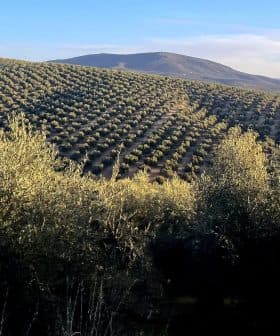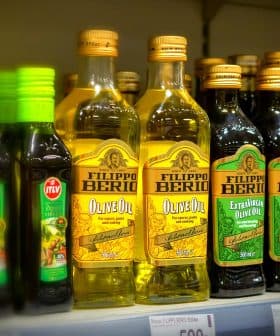Rising Olive Oil Prices, Exports Help Sustain Tunisian Trade Balance
Rising olive oil prices have boosted Tunisia’s export revenues, with a 39% increase in exports by value and a 4.6% increase in exports by volume in the past year. Despite challenges such as low domestic consumption and a decrease in production due to drought, the country’s olive oil sector remains a significant contributor to agricultural exports, particularly to the European Union.
Rising olive oil prices on the international markets are boosting export revenues in Tunisia, according to the latest data published by the National Observatory of Agriculture (Onagri).
Onagri said exports by value increased by 39 percent from November 2021 to October 2022 compared to the same period one year before. As a result, the total olive oil export turnover reached 1.83 billion Tunisian dinars (€544 million).
The observatory added that a 33-percent increase in olive oil prices over the past 12 months coincided with a 4.6‑percent increase in exports by volume. Tunisia exported 167,200 tons in the 2021/22 crop year, up from 159,800 tons in 2020/21.
See Also:Low Availability and Rising Prices Spark Concerns of Olive Oil Fraud in MorroccoOnagri credited the significant increases in olive oil exports with improving the country’s food trade balance. It said 40 percent of all Tunisian agricultural exports come from olive oil.
Dates are the second most exported product, with a 12 percent share of overall exports. Agricultural and food exports represent nearly 10 percent of Tunisian exports by value.
The country’s food trade balance deficit substantially increased at the end of October 2022 compared to the previous year, rising from 1.70 billion Tunisian dinars (€505 million) to 2.80 billion dinars (€833 million).
Food product exports by value rose 31 percent, with imports increasing by 42 percent. Onagri attributed increasing food prices to the Russian invasion of Ukraine.
According to a recent study published by New Medit, an economics journal, the olive oil sector accounted for 8 percent of total Tunisian agricultural production from 2016 to 2020, with the North African country exporting nearly 90 percent of the olive oil produced in that period.
The study further found that while Tunisia was responsible for roughly 10 percent of global olive oil production over that period, it contributed to 20 percent of exports.
The largest destination for Tunisian olive oil shipments is the European Union due to the strong demand from the bloc’s internal market and the agreement that allows Tunisian exporters to ship up to 56,700 tons of duty-free olive oil to the E.U. annually.
However, the study found that consumer awareness of Tunisian olive oil in the E.U. remains very low. The researchers attributed this to the fact that most Tunisian olive oil exports to Europe are in bulk before being blended with other olive oil.
Once bottled, the labels do not indicate that any of the olive oil comes from Tunisia, only stating that some was produced “outside of the European Union.”
Due to local investments and international partnerships, Tunisian olive oil production has grown steadily in the past decades. However, production is expected to slip to 200,000 tons in the current crop year, a 15 percent decrease compared to last year due to the ongoing drought.
The researchers behind the New Medit study said they believe the most significant challenge facing Tunisian olive oil producers comes from low levels of domestic consumption in the country, estimated at 3.8 kilograms per capita. By contrast, Spain’s per capita olive oil consumption is closer to 11.7 kilograms.
“This work has led to the conclusion that, in Tunisia, obtaining sustained production and quality is the key factor to increasing the market share of Tunisia in new markets,” the researchers wrote.
“To reduce the effect of alternation on production and to bring Tunisia’s production level closer to that of the European Union, cultivation activities such as irrigation and mechanization should be improved,” they added.
The authors concluded that better marketing practices, reduced volumes of bulk shipments in favor of individually bottled and branded exports and a more considerable emphasis on organic olive oil production would also add value to the sector.









